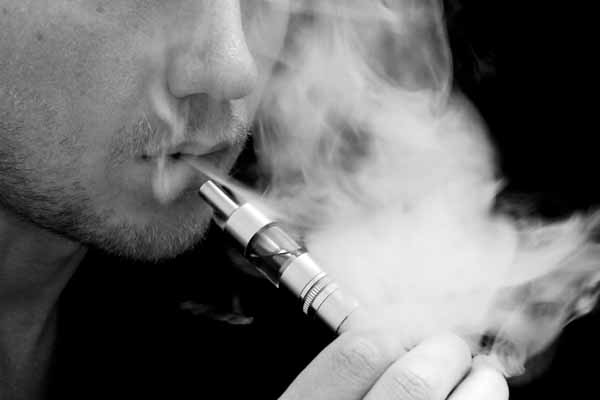
The importance of the U.S. Food and Drug Administration’s (FDA’s) recent order for electronic cigarette-maker Juul Labs Inc. to stop selling or distributing products “cannot be overstated,” said Pasadena pediatrician Lindy Upton McGee, MD, an assistant professor at Baylor College of Medicine.
“It sends a strong message to the public that these are not safe products,” said Dr. McGee, who has testified on behalf of the Texas Medical Association on tobacco legislation and works on that topic with the Texas Pediatric Society and the American Academy of Pediatrics. “As a pediatrician, it is not uncommon for me to have a conversation with a teenage patient who thinks that all they are vaping is a harmless, flavored water vapor, and this could not be further from the truth.”
However, stopping the sale or distribution of Juul products is a partial victory because e-cigarette use in Texas is unlikely to be seriously affected without statewide action, Dr. McGee added.
“Since the vaping industry saw this coming, there are currently other products on the market which youth are using as alternate sources of nicotine,” Dr. McGee said. “In January 2020, the FDA issued a ban on flavored cartridges, like those found in Juul products, with the exception of menthol and tobacco flavors. After this ban took effect, youth began switching to non-cartridge-based disposable products, like PuffBar.”
Meanwhile, JUUL sued over the decision, and a federal judge temporarily blocked the FDA ban, which for now allows the company to continue selling and distributing its products. It remains unclear how long Juul will be able to keep its products before the public, and The Wall Street Journal reports that the company is considering bankruptcy.
The American Academy of Pediatrics has urged FDA to go further and remove all flavored e-cigarette products from the market, including menthol.
The Texas Public Health Coalition (TPHC) – which includes TMA and dozens of other organizations – has called for state policymakers to enact a range of reforms designed to discourage vaping. For instance, TPHC advocacy helped lead the 2021 Texas Legislature to put vaping products on the same regulatory footing as products made with tobacco. But vaping products still are not taxed at the same rate as tobacco products.
Texas also has made headway at the local level in discouraging the use of e-cigarettes. Earlier this year, the Houston City Council voted unanimously to add e-cigarettes to the city’s ordinance on smoking in public places. The ordinance banned vaping products everywhere that traditional tobacco products have been banned since 2007.
While local efforts are encouraging, statewide action is more effective at preventing the use of nicotine products, Dr. McGee says.
“We need to increase taxes on conventional cigarettes by at least $1 per pack and impose an excise tax on e-cigarettes that achieves parity with combustible cigarettes,” Dr. McGee said. “Banning all characterizing flavors, including menthol, in tobacco products and e-cigarettes would lead to a reduction in youth use. This has been done elsewhere in the country with positive results.”
Texas received an “F” grade on the American Lung Association's 2022 report card in the category of providing smoke-free air. It also received F’s for tobacco prevention and cessation funding, tobacco taxes, access to cessation services, and access to flavored tobacco products.